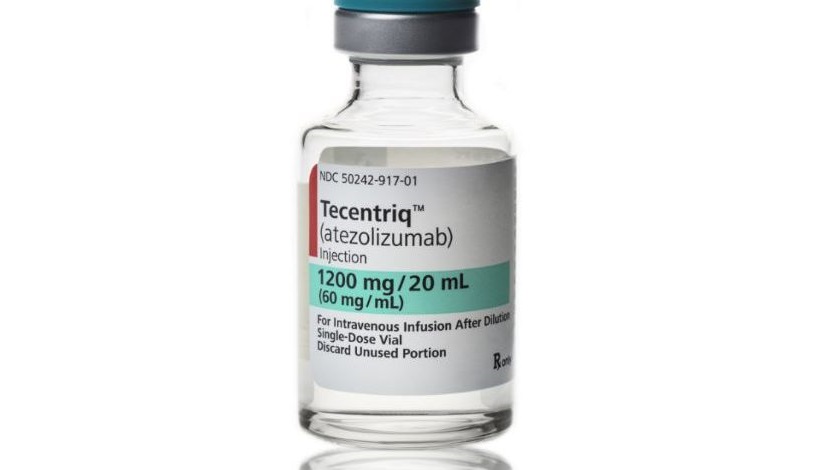Roche’s Tecentriq claims melanoma OK, but don’t expect a sales surge

Roche’s checkpoint inhibitor Tecentriq has been cleared for another new use in the US – in melanoma – but could struggle to displace rival drugs from Bristol-Myers Squibb and Merck & Co.
The FDA has approved the PD-L1 inhibitor as a combination with two targeted drugs – MEK inhibitor Cotellic (cobimetinib) and BRAF inhibitor Zelboraf (vemurafenib) – as a first-line treatment for patients with advanced melanoma with BRAF V600 mutations.
The approval stems from the IMspire150 trial, which showed that the triplet therapy reduced the risk of disease progression or death compared to Cotellic, Zelboraf and placebo.
The median progression-free survival (PFS) was 15.1 months in the Tecentriq (atezolizumab) group compared with 10.6 months, although objective response rates in the two groups were similar at 66% and 65%, respectively.
That’s a solid result, and a compelling comparison to make when IMspire150 was started three years ago. Unfortunately for Roche, melanoma treatment has evolved in the interim and the standard of care for these patients has moved on.
BMS’ Opdivo (nivolumab) and Merck’s Keytruda (pembrolizumab) have been approved for use in melanoma since 2014, and right now the combination of Opdivo with BMS’ CTLA4-targeting checkpoint inhibitor Yervoy (ipilimumab) looks set to become the go-to therapy in the US.
Opdivo/Yervoy was cleared for BRAF V600-positive melanoma in 2015, and for all-comer melanoma patients the following year, giving oncologists years of experience with its use and – crucially – plenty of impressive follow-up data.
Last year, BMS reported updated results from the CheckMate-067 study showing that 52% of patients on the regimen were still alive five years later, with the benefit present even in patients who stopped taking the drugs early due to side effects.
Over the same period, Cotellic sales have shrunk from around $400 million to a little over $50m last year as immunotherapy displaced targeted therapy in this type of melanoma.
That said, there are tolerability issues with Opdivo/Yervoy that could encourage some doctors to consider the Tecentriq triple for their BRAF V600-positive patients. Overall however, melanoma is considered to be a nice addition to Tecentriq’s approved indications that won’t be a big driver for new sales.
That’s more likely to come from other new indications for Roche’s drug, including new approvals as a monotherapy and in combination with chemotherapy in previously-untreated non-small cell lung cancer (NSCLC) and as a combination with Roche’s Avastin (bevacizumab) in liver cancer.












